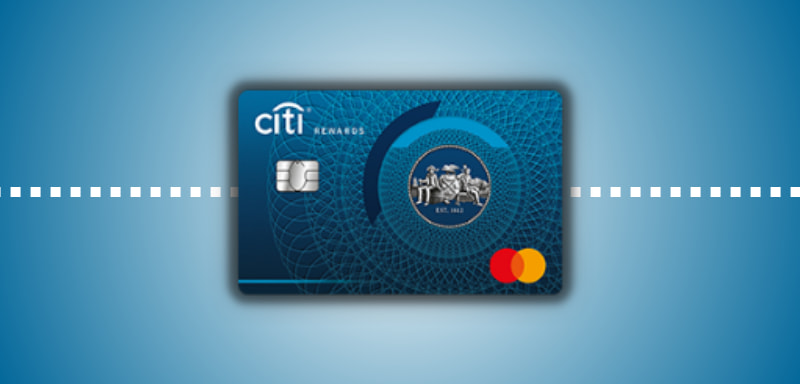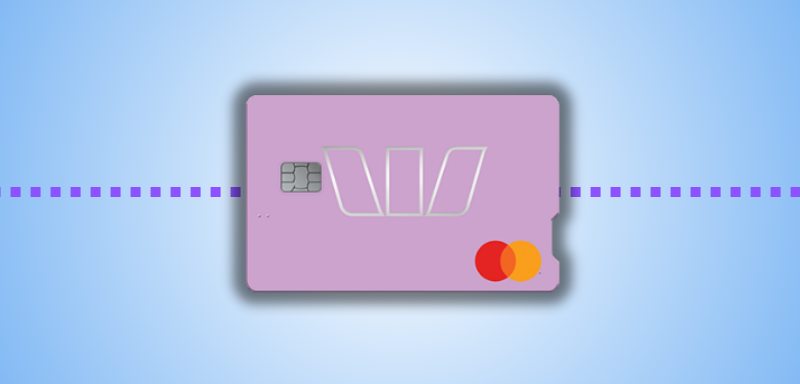Women Finance
How Women Can Build Strong Financial Habits
Explore smart, actionable steps for building strong financial habits and real-world routines. Empower yourself with systems, scripts, and practical tools for lifelong money confidence.
Advertisement
Picture a calm morning: coffee in hand, bank account organized, bills set on auto-pay. That sense of stability doesn’t happen by accident—clear financial habits make it easier. These routines, built over time, add up to control, dignity, and self-reliance for women.
Money touches almost every part of life, from lunch with friends to future dreams. Understanding why financial habits matter empowers women to set rules for calm, steady growth, rather than reacting to stress or surprise bills.
This article shares practical steps for women at any stage to build, strengthen, and maintain habits for a resilient financial foundation. Explore fresh perspectives, actionable lists, and realistic scripts for change.
Setting a Solid Foundation with Purposeful Routines
Organizing daily money routines gives you visible wins and reduces anxiety. Starting with one core financial habit—such as tracking spending—makes progress feel tangible. Purposeful routines carve out mental space for bigger decisions later.
Choosing a morning or evening slot for reviewing bank balances creates structure. Over time, you’ll notice patterns in your money flow, helping uncover where small changes can yield significant results.
Anchoring Habits to an Existing Routine
Linking a financial check-in to a habit you already have increases follow-through. For example, right after brushing your teeth, spend two minutes glancing at your account.
This micro-check keeps finances top of mind without adding stress, making it harder to ignore spending patterns or unexpected bank fees. The key is that it becomes almost automatic—a muscle memory for your money.
Repeating the process at the same time each day means fewer missed details. Soon, tracking balances or setting scheduled transfers will feel as natural as making your morning coffee.
Noticing and Addressing Emotional Roadblocks
Emotions like shame or uncertainty can interrupt even the best-intended financial habits. When anxiety hits, say, “I feel nervous about reviewing my account, but I’ll just check one number.”
Clear labeling of emotions reduces their hold. Pairing this with a script (“I’m learning, not judging myself”) helps keep things factual, so your routines continue even on hard days.
Visual cues, like a sticky note or a phone reminder, also break through mental noise—showing, not just telling, that this step matters.
| Routine | Positive Outcome | Disruption Example | What to Do Next |
|---|---|---|---|
| Daily account review | Catches errors, builds awareness | Missed two days after busy week | Start again, add a reminder |
| Weekly spending log | Highlights patterns, stops leaks | Skip due to guilt over purchases | Non-judgmental review, record anyway |
| Monthly budget check | Prevents overspending | Budget doesn’t match reality | Adjust categories, try again! |
| Savings transfer | Steady savings growth | Forgets to move money | Automate transfer, use online bank |
| Bill payment schedule | Avoids late fees, boosts credit | Password lost, payment missed | Set up bill reminders, reset password |
Designing Systems That Make Follow-through Easy
Building enduring financial habits means setting up systems that reduce friction. Each step—like organizing bills in one folder—makes the next action feel obvious and simple.
For example, using one spreadsheet for all your goals consolidates decisions, making routines stick. Streamlining removes the overwhelm so good financial habits become part of everyday life.
Automating Decisions for Lasting Consistency
Automating recurring tasks—like paying bills or moving money into savings—frees up brainpower for creativity instead of anxiety. Automatic payments or transfers cut down on missed deadlines and late fees.
- Set up automatic bill pay to eliminate missed payment stress and protect your credit. Most banks let you schedule this in minutes online.
- Create recurring calendar events to remind you to check your budget. This keeps financial habits visible and top-of-mind, no sticky notes required.
- Consolidate accounts to reduce login headaches and get a unified spending overview. Fewer accounts means fewer forgotten details.
- Group financial documents in one digital folder, making tax time or credit checks faster and less intimidating.
- Automate savings transfers on payday so saving happens before you get tempted to spend. Very effective for building an emergency cushion.
Each system lightens your mental load. Automated routines convert good intentions into regular actions—essential for women balancing work, family, and personal growth.
Experimenting Without Fear of Mistakes
Think of systems as workout routines: needing tweaks and variety. Test new methods—maybe voice-memoing expenses or trying a budgeting app. There’s no penalty for changing tactics as long as the habit sticks.
- Try cash budgeting for a week: see your spending limits in real time and learn what triggers impulse buys most often.
- Batch financial tasks—handle all money matters on a set day, minimizing disruption to the rest of your week.
- Use color-coded charts for budgeting if visuals motivate you. Data visualization makes patterns jump out, revealing overlooked fees or trends.
- Create a buddy system with a friend for mutual accountability. It’s easier to stick to goals with positive peer support.
- Rotate which accounts you review weekly to avoid boredom and keep your engagement high. Fresh routines defend against drift.
There’s real freedom in refining your systems. It’s not about perfection but about reinforcing financial habits that work for you, not against you.
Setting Clear Goals and Progress Markers
Defining a precise target—like “pay off $500 in debt”—shapes all your financial habits. Measurable goals turn day-to-day decisions into building blocks toward bigger change, providing regular evidence of progress.
Small milestones, celebrated well, motivate continued investment. Marking these moments—on a chart or with a reward—locks new habits in place and brings meaning to each routine.
Building Visual Trackers to Stay Motivated
Visuals make progress real. A thermometer chart showing your growing savings or a checklist shrinking your debt can feel like crossing finish lines every week.
These trackers turn big, abstract outcomes into bite-sized wins. If you glance at your fridge and see a colored bar moving up, your brain notices that consistency pays off.
Celebrate each checkpoint genuinely. For example, treat yourself to a library date after each achieved milestone rather than more spending. Rewards tied to self-care reinforce healthy financial habits.
Using “If-Then” Plans for Powerful Follow-through
If-then plans script responses for tricky moments: “If an impulse buy tempts me, then I’ll wait 24 hours before deciding.” Scripts automate discipline without constant willpower.
Embed these cues in your environment—a sticky note that says, “If you overspend today, spend five minutes reviewing your budget tonight.” The instructions become your habit safety net.
Try keeping a running list of your personal if-then scripts and revisit each month. This playbook will sharpen over time, standing by to guide real-life choices automatically.
Prioritizing Self-Advocacy and Information Seeking
Taking an active role in your finances—asking questions, reading new material, or comparing deals—protects your resources. This habit dismantles the myth that money management is intimidating or reserved for experts.
Staying curious isn’t just about big investment decisions; it creates a habit of confidence, making routine money moves easier and less stressful.
Finding Your Voice in Financial Conversations
Practice asking questions with, “Could you walk me through those fees?” or, “What are the terms of this account?” The more you use direct language, the more natural it becomes.
Avoid letting jargon intimidate you. When faced with unfamiliar words or processes, calmly ask for a plain-language explanation. Most professionals expect questions and appreciate a clear communication style.
Stating your boundaries—“I need 24 hours to review big financial decisions”—gives you time and space to make informed choices. You steer the pace, not anyone else.
Seeking Out Useful Resources and Guides
Subscribe to newsletters, podcasts, or safe community forums regularly reviewed for accuracy. Give yourself a set time each week to catch up—even fifteen minutes can spark game-changing insights.
Make a shortlist of trusted financial websites or books. Keep this list handy, so you don’t waste time vetting resources or getting lost in opinion overload.
Build “information check-ins” into your monthly routine. For example, bookmark new rates for interest, and check them when considering major purchases or savings decisions.
Growing Your Money Skills Through Everyday Practice
Daily money moves—like setting spending limits at the grocery store—build the muscle of financial habits. You don’t always need big changes; practicing with small stakes strengthens routine, low-pressure decision-making skills.
Turning regular purchases into mindful choices rewires how you view money’s purpose, freeing you from impulse buying and regret later on.
Using Real-Life Patterns for Quick Learning
Analyze where you routinely spend—like morning coffee stops or streaming subscriptions. Set a rule: “If I exceed my weekly limit on treats, shift next week’s spending to essentials.”
This active adjustment keeps your budget agile. By noting even minor deviations, you protect larger goals while learning what habits support or hinder your ultimate vision.
Check receipts before leaving stores—a moment that builds awareness. Noticing a mistake, such as being double-charged, gives you a confidence boost and immediate savings.
Practicing Assertive Scripts in Daily Transactions
Practice short scripts for pushback, like, “Thank you, but I’ll pass on the extended warranty,” or, “I need a day to think it over.” These boundaries reinforce control.
Watch for a polite head nod and firm but friendly tone. Scripts said calmly gain respect from cashiers, loan officers, or even family members puzzled by new habits.
Try rehearsing lines at home or with a friend. Role-play tricky scenarios, sharpening your assertiveness so financial habits translate into confident, everyday money actions.
Creating an Environment That Supports Success
Arranging your surroundings—digital and physical—to align with your financial habits prevents backsliding and supports consistency. For example, leaving your checkbook by your laptop encourages logging transactions before distractions hit.
Even small environmental tweaks, like using a motivational screensaver with your goal, can shift daily focus. These cues add up, making good habits easier than poor ones.
Reducing Temptations in Your Daily Path
Unsubscribe from shopping emails to limit impulse triggers. Out of sight means out of mind, so reduce visual clutter that encourages mindless buying.
Move savings accounts out of your main banking app’s home screen. This small digital obstacle decreases the urge to dip into emergency funds for non-emergencies.
Put a visual reminder—such as your written goal—where you see it while paying bills. This ties small daily steps back to your bigger financial habits and desired outcomes.
Adding Friction to Unwanted Spending
Use two-step verifications for online purchases, so impulse buys require extra thought. This pause-points adds a layer of intentionality, nudging you to consider needs versus wants.
Set daily spending limits on payment apps. The additional hassle of transferring funds creates a built-in protection against budget overshoots or emotional shopping sprees.
Try putting only weekly grocery cash in your wallet. Once it’s gone, you’re done—no cards for extras. This analog signal keeps your financial habits on course.
Reinforcing Your Progress and Planning for Adapting
Checking in regularly on your financial habits highlights growth, flags drift, and invites course corrections. Treat reviews as learning, not judgment—growth means flexibility as life changes.
Scheduling these check-ins, like a health check or oil change, keeps money matters on the radar and shows self-respect worth celebrating.
Adjusting Strategies as Circumstances Shift
Life events—job changes, moves, or family shifts—may require rapid adjustment to routines. Create a habit of reassessing budgets and priorities with every big transition.
If an expense category suddenly swells—say, medical bills—move budget dollars mindfully from non-essentials, then review your system for additional leaks or savings potential.
Stay proactive: the more you adapt in the moment, the sturdier your financial habits become for weathering future storms.
Celebrating Wins and Setting New Challenges
Marking victories, big or small, cements positive feelings about your routines and sparks momentum for harder goals ahead. Instead of just “checking off” milestones, share your win or reflect on what it unlocked.
Set a fresh challenge every few months—like increasing automatic savings by $10—or learning about a new investment option. This ongoing evolution prevents stagnation and deepens your financial knowledge.
Remember: ongoing progress, not perfection, is the hallmark of powerful financial habits. Track, reflect, and adjust.
Making Financial Habits Work for Your Goals and Values
Strong financial habits are built, not stumbled into, and they reflect what matters most to you. Make each step—routine, system tweak, assertive script, or victory check-in—part of a lifestyle shaped by careful, active choices.
The power of these habits comes from their ability to transform daily details into big-picture security and self-trust. Even small, thoughtfully chosen steps can open doors to greater independence and opportunity.
Commit to one new habit this week—maybe automating savings, or setting visual reminders. Watch your confidence and clarity grow with every action you take to strengthen your financial life.
Trending Topics

Debt Consolidation: When Is It Worth It?
Simplify your debt repayment with smart strategies. Learn when debt consolidation saves money and when it might not be the best option.
Keep Reading
Citi Rewards Credit Card Review: Big Points, Bright Perks
Discover the Citi Rewards Credit Card: earn points, enjoy perks like phone insurance and cashback, and explore flexible redemption options.
Keep Reading
Westpac Low Rate Credit Card Review: The Smart Way to Spend
Save more with the Westpac Low Rate Credit Card. Low interest rates and exceptional benefits make this card a must-have for smart spenders.
Keep Reading